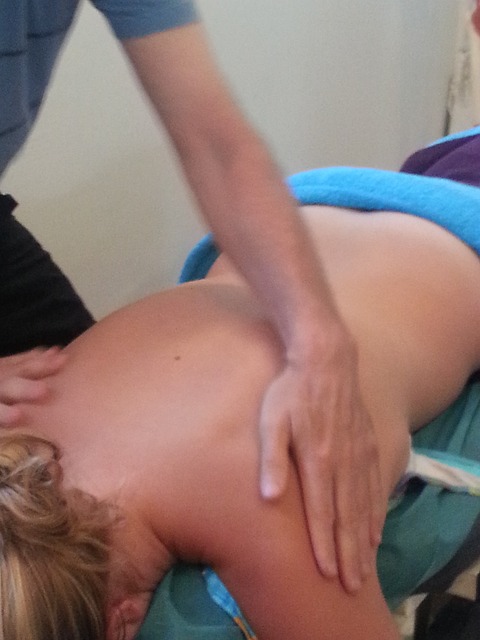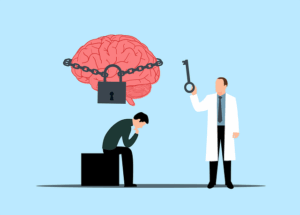Depression is a complex mental health disorder characterized by persistent sadness, loss of interest, appetite changes, sleep disturbances, fatigue, concentration issues, and feelings of worthlessness. Depression therapists play a pivotal role in recovery by offering evidence-based therapeutic approaches like CBT, psychodynamic therapy, and interpersonal therapy to diagnose, treat, and manage symptoms. These professionals create safe spaces, personalize treatment plans, combine therapy with medication management, and empower clients to take charge of their mental wellness. Holistic recovery involves lifestyle changes such as exercise, balanced nutrition, sleep, social connections, and mindfulness practices, guided by depression therapists. Peer support groups and motivational strategies are also integral parts of the healing process, fostering community and resilience.
Depression recovery programs play a pivotal role in empowering individuals to overcome mental health challenges. Understanding depression involves recognizing its subtle signs and symptoms, which can range from persistent sadness to loss of interest in activities once enjoyed. Depression therapists are key navigators in this journey, offering evidence-based therapies tailored to individual needs. This article explores various aspects of effective recovery, including therapy types, supportive environments, medication management, lifestyle changes, peer support groups, and strategies for measuring success and maintaining motivation.
Understanding Depression: Signs and Symptoms

Depression is a complex mental health disorder that significantly impacts an individual’s daily life and overall well-being. It’s more than just feeling sad or having a bad day; it’s a persistent state of low mood and disinterest in activities once enjoyed. Understanding depression involves recognizing its subtle signs and symptoms, which can vary from person to person. Common indicators include persistent feelings of sadness, loss of interest or pleasure in hobbies, changes in appetite and sleep patterns, fatigue, difficulty concentrating, and thoughts of worthlessness or hopelessness.
Seeking help from qualified depression therapists is a crucial step towards recovery. These professionals are trained to diagnose and treat depression using evidence-based therapeutic approaches. Through counseling sessions, individuals can learn coping strategies, explore underlying causes, and develop personalized plans to manage symptoms effectively. With the right support, it’s possible to overcome depression and regain control over one’s life.
The Role of Depression Therapists in Recovery

Depression therapists play a pivotal role in facilitating recovery by providing specialized support and guidance. Through various therapeutic techniques, such as cognitive-behavioural therapy (CBT), psychodynamic therapy, or interpersonal therapy, these professionals help individuals understand and manage their symptoms. Depression therapists offer a safe space for clients to explore the underlying causes of their depression, develop coping strategies, and cultivate resilience. They tailor treatment plans to meet individual needs, ensuring that each session is focused on progress and personal growth.
The expertise of depression therapists extends beyond therapy sessions. They often assist with medication management, collaborating with primary care physicians to prescribe or adjust medications as needed. Additionally, they may refer clients to other specialists, such as nutritionists or support groups, to address holistic aspects of well-being. By integrating these diverse approaches, depression therapists empower individuals to take control of their recovery journey and cultivate long-lasting mental health.
Types of Therapy for Effective Depression Treatment

Depression recovery programs offer a range of effective therapy options, each tailored to address specific aspects of the condition. One common approach involves cognitive behavioral therapy (CBT), which helps individuals identify and change negative thought patterns and behaviors contributing to their depression. CBT focuses on teaching practical skills for managing symptoms and improving overall mood regulation.
Another prominent type is interpersonal therapy (IPT), centered around exploring and enhancing relationships as a means of alleviating depressive symptoms. IPT aids in understanding and resolving issues within personal connections, promoting better communication and social support—key factors in successful depression recovery. Additionally, psychodynamic therapy delves into unconscious thoughts and past experiences, providing insights that can help individuals gain perspective and work through underlying emotional challenges associated with their depression.
Creating a Supportive Environment for Healing

Creating a supportive environment is paramount for individuals navigating depression recovery. This involves fostering a safe and non-judgmental space where those struggling can openly express their feelings and experiences without fear of criticism or rejection. Enrolling in well-structured depression therapy programs, led by qualified therapists, plays a pivotal role in cultivating this environment. These professionals are equipped to provide evidence-based strategies tailored to each individual’s unique needs, promoting healing and growth.
Supportive settings also extend beyond the therapeutic space, encompassing relationships and living environments. Building a strong support network of understanding friends and family members can significantly enhance recovery. Additionally, creating physical spaces that promote relaxation and mental well-being, such as incorporating nature or engaging in activities one finds calming, contributes to a holistic approach to healing from depression.
Medication and Its Place in Depression Management

Medication plays a significant role in managing depression, often used alongside therapy by depression therapists. Antidepressant medications help balance brain chemicals that may be affected in individuals experiencing depression, potentially easing symptoms like sadness, hopelessness, and fatigue. They can take several weeks to show results, and it’s crucial to work closely with a healthcare provider to determine the most effective medication and dosage.
While medication can be highly effective, it’s not a one-size-fits-all solution. Some individuals may find they respond better to specific types of antidepressants, while others might require adjustments or even alternative treatments. Depression therapists often collaborate with prescribing physicians to monitor progress and adjust medications as needed, providing comprehensive care tailored to each person’s unique needs.
Lifestyle Changes for Long-Term Well-being

Depression recovery programs often emphasize the role of lifestyle changes for long-term well-being. This includes adopting healthy habits such as regular exercise, balanced nutrition, and sufficient sleep. Depression therapists typically guide individuals through these transitions, helping them develop coping strategies that promote mental resilience. Engaging in physical activity, for instance, can boost mood by releasing endorphins, while a nutritious diet supports overall brain health.
Additionally, cultivating strong social connections and practicing mindfulness or meditation techniques can significantly contribute to recovery. Depression therapists may recommend building a supportive network of friends and family or exploring community groups where individuals with similar experiences can connect. Mindfulness practices help individuals stay present, reduce stress, and improve their ability to manage depressive symptoms over time.
Peer Support Groups: Building a Community

Peer Support Groups play a pivotal role in Depression recovery programs, fostering a sense of community and understanding among individuals facing similar challenges. These groups provide a safe, non-judgmental space where members can share their experiences, offer encouragement, and learn from one another’s journeys. Interacting with peers who’ve navigated depression themselves offers invaluable support, challenging the isolation often associated with mental health struggles.
Depression therapists frequently incorporate peer support groups into treatment plans as they promote social connection, reduce stigma, and enhance coping strategies. Within these groups, individuals can gain perspective, develop resilience, and build a network of support that extends beyond therapy sessions. The collective experience and diverse perspectives shared within the group contribute to a holistic approach to recovery, empowering members to advocate for their well-being.
Measuring Success and Staying Motivated

Measuring success in depression recovery is a personal journey, often defined by small victories and gradual progress. Depression therapists play a pivotal role in guiding individuals through this process, helping them set achievable goals and track their mental health improvements. This could involve regularly assessing symptoms, mood swings, and overall well-being, allowing for adjustments in treatment plans as needed. Staying motivated requires a multifaceted approach. Therapists encourage clients to celebrate milestones, no matter how small, to foster a sense of accomplishment. Additionally, they may introduce techniques like positive self-talk, mindfulness practices, or reward systems to boost motivation and maintain momentum during challenging times.
